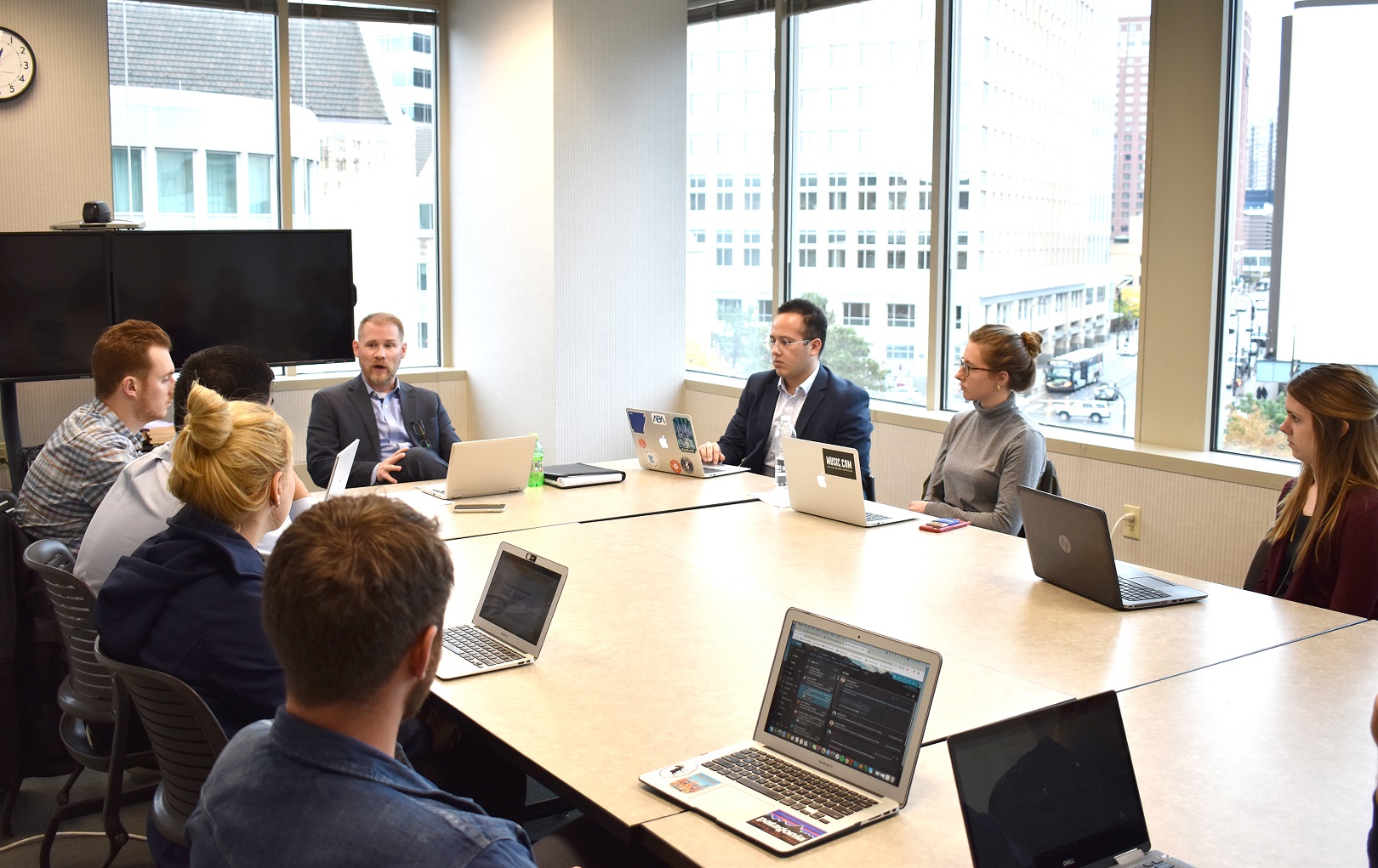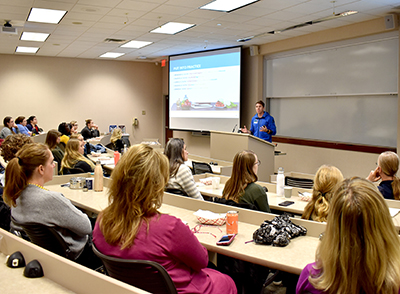This story is featured in the summer 2021 issue of St. Thomas Lawyer.
Beyond learning the technical points of the law, the St. Thomas School of Law emphasizes to students the importance of professional relationships and continued career growth through individual reflection and vocational discernment. It also seeks to provide students with practical training to learn, in a hands-on way, the skills necessary to be successful in the legal profession.
These all come together in the school’s award-winning Mentor Externship Program, through which each St. Thomas Law student is paired with a lawyer or judge each year of law school to help them gain work experience, develop professional connections and navigate the legal field.
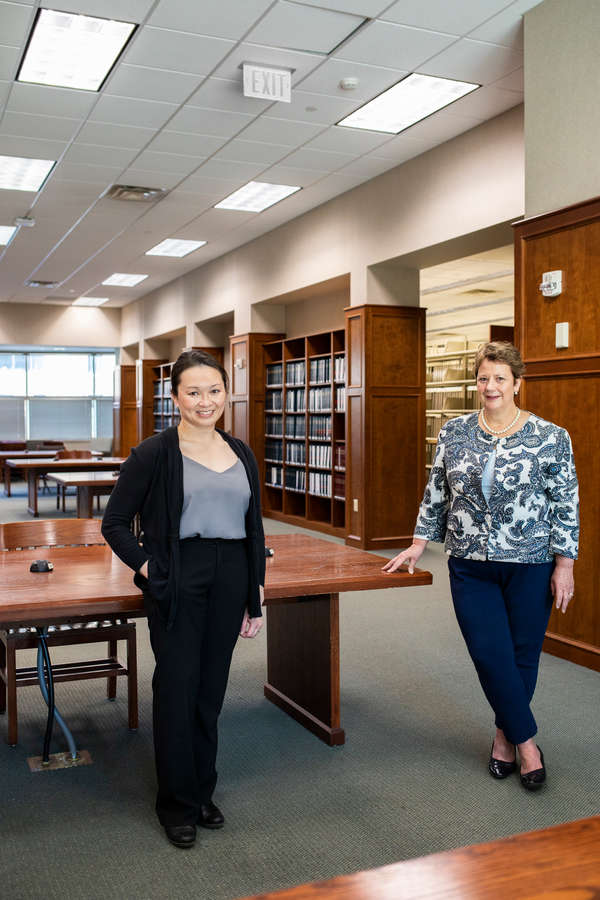
Uyen Campbell (left) and Judith Rush (Liam James Doyle/University of St. Thomas)
“What we aim to do in the program is to give all of our students an introduction to what it means to be a lawyer by being mentored by a lawyer,” Judith Rush, Mentor Externship Program co-director, said.
By developing these relationships and exposing students to the day-to-day aspects of the profession, the gap between law student and legal professional is vastly narrowed , which is what the faculty and staff who designed the program in 2001 aimed to do when the law school opened and why the program remains impactful today.
“Lawyers and judges have historically criticized legal education as long on theory and short on practice-ready,” said Associate Dean for External Relations and Programs Lisa Montpetit Brabbit, who has overseen the program as part of her department since she started at the law school in 2002.
“The mentor program sought to address that challenge head-on and bring professional identity formation to the mix to educate the whole person. The template allows students to reflect and to learn from their experiences, growing competencies that might not be covered in the classroom. And because of the strong integration with the profession, the learning is guaranteed to be relevant to the real-world challenges of the day.”
Students get to dive into different areas of the law, not only to see what their mentors do in the courtroom or with clients, but also to have discussions with their mentor about preparing for interviews, how to study for the bar exam, balancing work and life, building a law practice and more.
“They’re talking not only about the work that the attorney does, but also their life outside of work,” said Uyen Campbell, who taught a Mentor Externship course for 10 years before becoming co-director of the program with Rush in 2019. “It prepares the students not only for the profession itself in terms of working with clients or being in court, but also personally for the profession.”
“The School of Law doesn’t forget that its student body is first and foremost made of people, and it does an excellent job fostering an environment of personal growth as we learn the law,” said Kevin Green, a rising 2L who serves on the Mentor Externship Advisory Committee and helps provide the Mentor Externship Program with feedback and ways to continually improve.
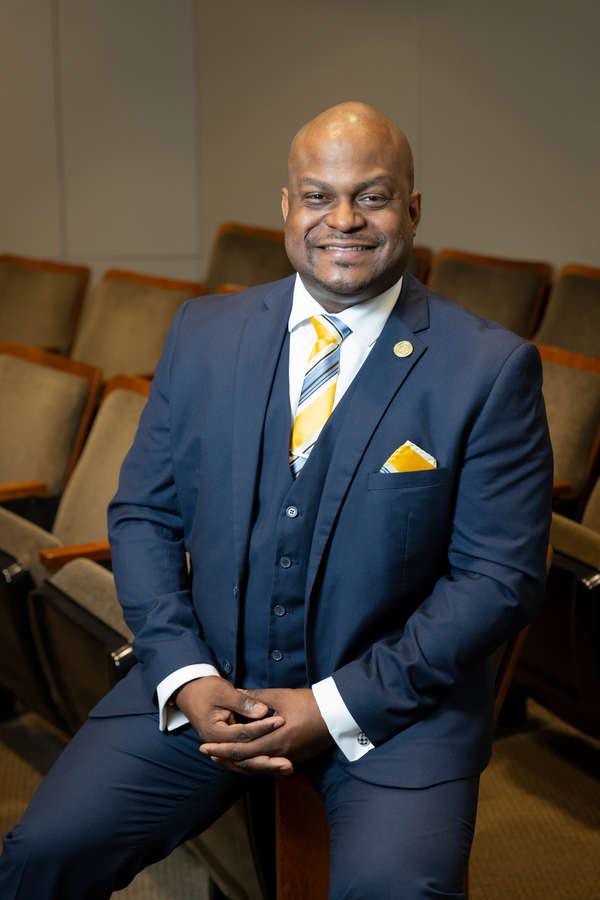
Kevin Green (Mark Brown/University of St. Thomas)
For law students, mentoring experiences can be critical to immediate and long-term success as an attorney, especially if they do not have preexisting connections to the people in the legal field.
“I’m a first-generation lawyer, a first-generation law student, and I had no idea what to expect [in law school],” said Cousineau, Waldhauser & Kieselbach shareholder and Director of Professional Development Adam Brown ’06 J.D., who also has volunteered as a mentor and taught a Mentor Externship course. “The fact that the program had this connection and there was a guarantee that I would be able to see a real lawyer doing real legal work was huge and is still to this day a positive influence on my career.”
Each year, more than 500 lawyers and judges are matched with students in the J.D. and international LL.M. in U.S. Law programs. Many are returning mentors who have participated in the program year after year. In fact, the program has a high retention rate of mentors at about 90% and in 2021, 64 individuals reached the milestone of having mentored students for 15 or more years. In total, more than 2,000 mentors have participated in the program since it began.
The School of Law provides structure to mentors and students, including timelines and a list of more than 600 different types of fieldwork activities. Rush said that this structure, which helps mentors know what is expected of them and when, along with the extensive communication the school has directly with the mentors, contributes to the high retention rate.
“[The school has] really devised a program that has a lot of benefits for the students and also for the mentors as well,” 11-year mentor and Ramsey County Attorney John Choi said.
Fourteen attorneys from the Ramsey County Attorney’s Office are mentors, while 17 attorneys from the Hennepin County Attorney’s Office participate in the Mentor Externship Program.
“The program is formalizing a more natural or organic process of networking. In other words, for those students who may find it more difficult to get out and meet others, network naturally, or are unsure where to start, it gives them that launch pad,” said Jill Sauber ’13 J.D., who now serves as a mentor. “Those skills are critical in practice. The program is important for the firms and mentors because mentees give us a new perspective and energy that sometimes we lose during the daily grind – it is refreshing.”
To ensure meaningful mentor-student interactions, Rush and Campbell carefully match each pairing. They take into account several factors, including students’ career goals and aspirations, when selecting mentors and mentees. Taking a personalized approach, they say, is what allows each relationship to really thrive.
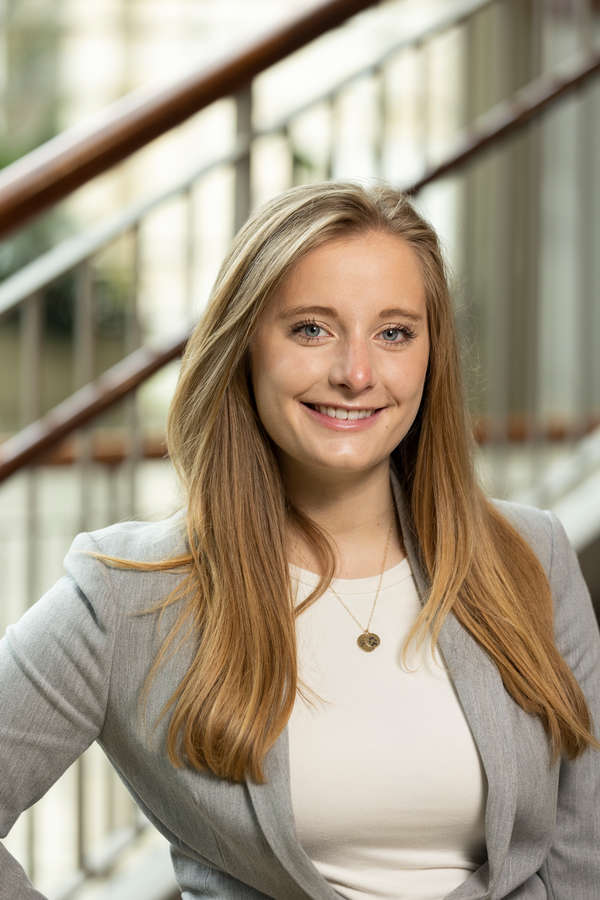
Natalie Cote (Mark Brown/University of St. Thomas)
St. Thomas Law student Natalie Cote’s experience in the program in her 1L year with her mentor, Minnesota 10th District Judge Tad Jude, led to her first law clerk position at the Washington County Attorney’s Office. Cote logged more than twice the Mentor Externship Program’s required hours with Jude.
Cote, who just completed her 2L year, gained exposure to the defense side of criminal law with her second mentor, John Lillie. “I observed client meetings and court hearings. I gained additional writing and research experience with him, which taught my brain how to switch to the defense side,” she said. “Everything he taught and showed me further sparked my passion for the defense side.”
For a program built on personal connections that emphasizes the importance of communication, the COVID-19 pandemic has been a significant disruption, but it hasn’t halted mentoring activities.
Rush and Campbell quickly pivoted in March 2020 to adapt the program and put safety protocols in place for all participants. They say mentors have been wonderful and gone above and beyond to create online and socially distanced interactions.
The pandemic also provided an opportunity: group mentoring experiences. Long an idea for Rush and Campbell, these incredibly popular experiences involve mentors meeting with 10 students at a time on Zoom.
Reflecting on the success of the program, Rush gave credit to the many leaders from the School of Law who have been involved over the years, including: Montpetit Brabbit; Founding Associate Dean and U.S. District Judge Patrick Schiltz; and Holloran Center co-directors Neil Hamilton and Jerry Organ.
The Mentor Externship Program has grown over the years to become one of the most distinctive aspects of a St. Thomas legal education. It also differentiates St. Thomas from other law schools.
“The reason that we can continue to do what we do, do it well and do it in a way that others can’t is because we truly are part of the fabric here. That’s not an accident,” Rush said.
The Mentor Externship Program has earned external praise, as well, earning numerous awards since its inception. In 2005, it was awarded the prestigious E. Smythe Gambrell Professionalism Award by the American Bar Association (ABA) Standing Committee on Professionalism. That same year, the Mentor Externship Program was one of three national finalists for the ABA award on innovations in teaching professionalism. The program was ranked No. 1 for the most externship placements for full-time law students, according to the National Jurist’s preLaw magazine. From 2014-21, St. Thomas Law has been ranked among the top three schools in the nation for practical training, which includes mentoring, also by National Jurist.
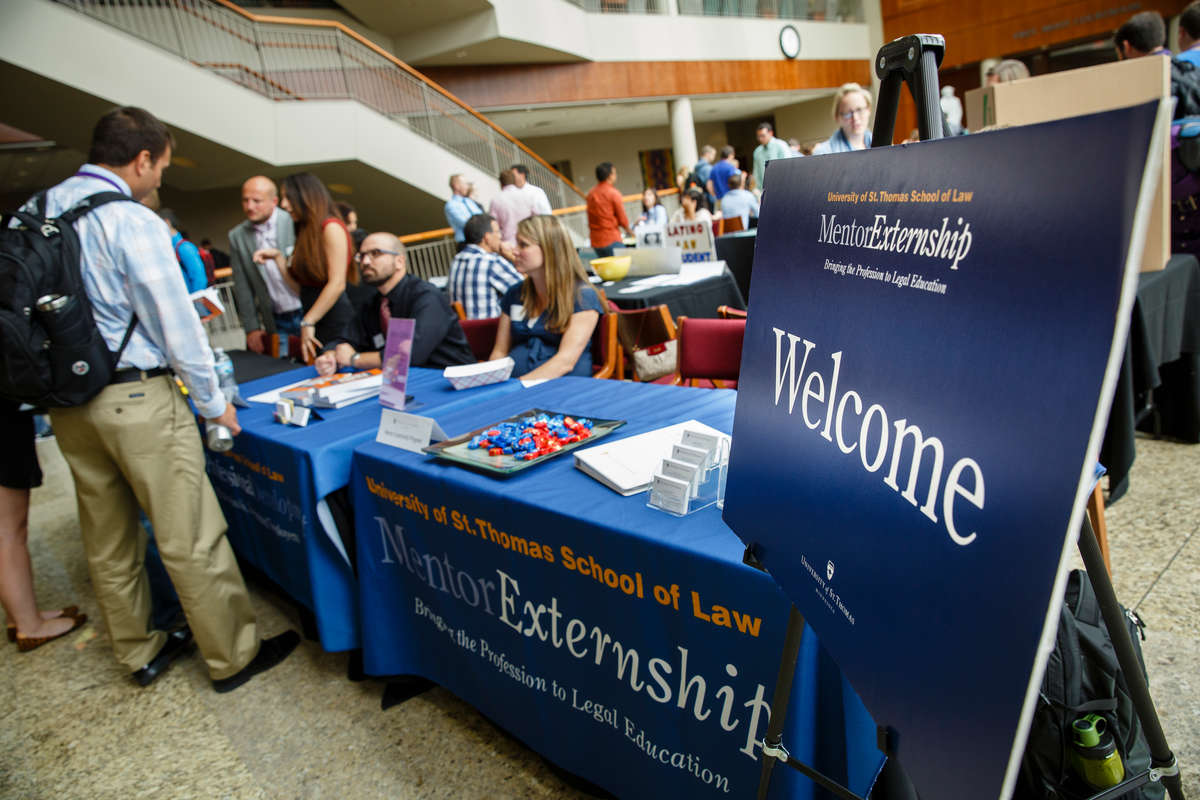
A welcome sign for the Mentor Externship program is pictured during a School of Law picnic lunch as part of orientation in the Schulze Grand Atrium in the School of Law building on Aug. 21, 2014. During the lunch students socialized, met faculty and learned about clubs, organizations and services at the law school. (Mark Brown/University of St. Thomas)
